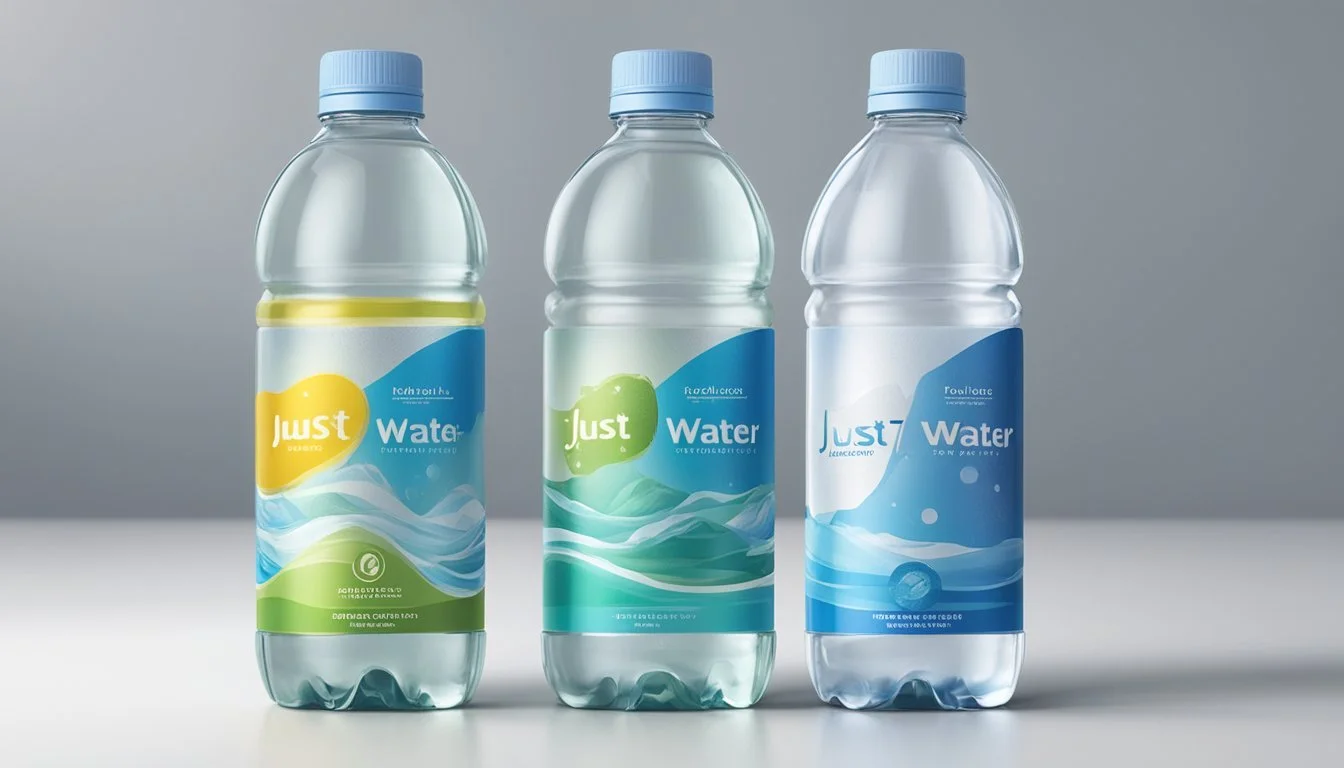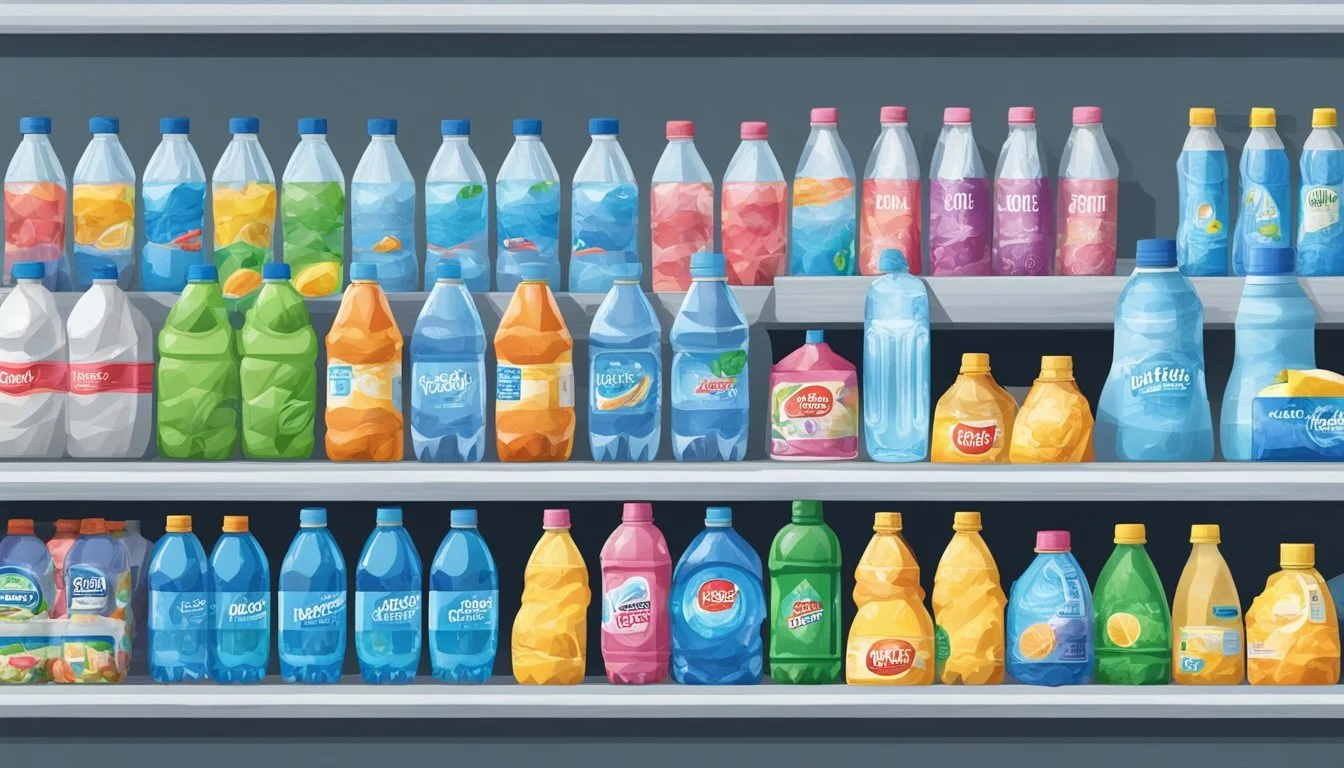Just Water vs. 7-Select
Which Bottled Water is Better? A Comprehensive Comparison
When it comes to choosing bottled water, discerning consumers often compare brands like Just Water and 7-Select. Both cater to distinct needs and preferences, making it essential to evaluate their differences to decide which one stands out.
Just Water, known for its commitment to sustainability, packages its product in plant-based cartons and sources its water from natural springs. On the other hand, 7-Select, 7-Eleven's house brand, offers convenience and affordability, making it a popular choice for those seeking a no-frills hydration option.
For those prioritizing environmental impact and taste, Just Water takes the edge with its eco-friendly packaging and refined flavor profile. In contrast, 7-Select appeals to budget-conscious consumers looking for a straightforward, reliable water source. By examining these factors, readers can make an informed decision on which bottled water better suits their lifestyle and values.
Understanding Bottled Water
Bottled water varies widely in terms of its source, treatment, and pH levels, which impacts taste, cost, and health benefits. These factors are crucial when comparing brands like Just Water and 7-Select.
Defining Purified Water and Natural Spring Water
Purified water has undergone processes to remove impurities and contaminants. Common methods include reverse osmosis, distillation, and deionization.
Natural spring water comes from underground sources and flows to the surface naturally. It retains natural minerals and electrolytes, contributing to its distinct taste. Knowing whether a bottled water brand offers purified or spring water can guide consumer choice based on preferences for taste and purity.
Water Source Consideration
The source of bottled water significantly impacts its quality. Purified water is typically sourced from municipally supplied water or groundwater, which is then treated.
Natural spring water must originate from protected springs. Companies like Just Water source from naturally replenishing springs to ensure sustainability, while brands like 7-Select may use various local sources. Understanding sourcing helps consumers make informed decisions about purity and environmental impact.
Purification Processes Explained
Various purification methods are used to produce purified water. Reverse osmosis filters out contaminants using a semipermeable membrane. Distillation involves boiling water and then condensing steam back into liquid, removing minerals and contaminants.
Deionization removes ions, resulting in highly purified water. Each method varies in effectiveness and cost. Consumers interested in specific health benefits or taste profiles should be aware of the differences in these processes.
Importance of pH Levels in Bottled Water
The pH level of bottled water can influence taste and health effects. Pure water has a neutral pH of 7.
Bottled waters may have altered pH levels, making them alkaline or acidic. Alkaline water claims to neutralize acid in the body and provide various health benefits. Acidic water, on the other hand, may not be ideal for frequent consumption. Brands indicate pH levels on labels, enabling consumers to choose based on personal or health preferences.
Brands like Just Water often highlight their pH levels, typically aiming for a neutral or slightly alkaline range.
Comparative Analysis of Just Water and 7-Select
Both Just Water and 7-Select offer distinctive features in their brand philosophies, water quality, and taste profiles. Here, we compare these aspects in detail to help consumers make an informed choice.
Brand Origin and Philosophy
Just Water focuses on environmental sustainability and social responsibility. Founded by Jaden Smith, the brand aims to reduce plastic waste through the use of plant-based cartons. Additionally, it collaborates with communities to source water responsibly and supports ethical practices.
7-Select, a brand by 7-Eleven, emphasizes convenience and accessibility. While not primarily focused on sustainability, 7-Select offers purified water using reverse osmosis, ensuring a consistent quality for the everyday consumer.
Water Quality and Safety Standards
Just Water sources its water from Glens Falls, New York, known for its high-quality springs. The water undergoes minimal processing to retain natural minerals, which differentiates it from many other brands. The packaging reduces environmental impact and aligns with FDA and Environmental Protection Agency (EPA) standards for safe drinking water.
7-Select Pure Water uses advanced reverse osmosis to ensure purity. This process removes contaminants and adds minerals and electrolytes for taste. Although 7-Select may not have the same sustainability focus, its stringent purification process ensures compliance with FDA and EPA safety standards.
Taste Profiles
Consumers often describe Just Water as having a clean and refreshing taste. The natural minerals retained during minimal processing contribute to this characteristic, making it appealing to those who prefer a more natural taste.
7-Select offers a neutral taste, which many consumers find refreshing and suitable for hydration. The added minerals and electrolytes enhance the flavor slightly, but the primary appeal is its purity and consistency.
In conclusion, Just Water and 7-Select each bring unique strengths to the table, catering to different consumer needs and preferences.
Health and Hydration Factors
When choosing between Just Water and 7-Select bottled water brands, evaluating their health and hydration benefits is essential. This assessment includes examining their mineral content, electrolyte levels, and pH balance, which impact hydration.
Hydration Benefits
Just Water is known for its balanced pH and trace minerals, which can support optimal hydration. Its packaging is also environmentally focused, which appeals to health-conscious consumers.
7-Select bottled water provides a convenient hydration solution with accessibility and consistent quality. However, compared to Just Water, it may lack some additional minerals and benefits.
Both brands offer hydration solutions, but their features like pH balance and mineral content are key distinguishing factors.
Packaging and Environmental Impact
Just Water and 7-Select utilize different strategies for packaging, each with unique considerations for environmental impact and sustainability. This section examines these strategies in detail, evaluating the environmental initiatives, and bottle materials used by both brands.
Environmental Initiatives and Impact
Just Water emphasizes its commitment to sustainability. The brand uses FSC-certified paper for most of its carton and a plant-based plastic cap, both of which are designed to reduce reliance on fossil fuels. Their packaging aims to minimize carbon footprint, with the company marketing its container as being 100% recyclable.
7-Select, on the other hand, employs traditional plastic bottles, resulting in a more familiar but less eco-friendly product. While 7-Select's bottles are also recyclable, their production and disposal contribute more significantly to environmental waste and carbon emissions. The Environmental Protection Agency (EPA) supports recycling of PET plastics, but the efficacy depends on consumer disposal habits.
Bottle Materials and Designs
Just Water’s bottle comprises 54% paper, 28% plant-based plastic, and 15% protective plastic lining, providing a blend that emphasizes both sustainability and recyclability. The paper used is sustainably sourced, and the overall design aims to significantly lower the environmental impact compared to traditional plastic bottles.
7-Select's bottles predominantly use PET plastic, which is widely recyclable but requires significant energy to produce and recycle. Although these bottles are often BPA-free, their environmental footprint includes higher CO2 emissions during production. Unlike glass bottles, which can be reused multiple times, PET plastic bottles generally contribute to single-use waste problems.
Both brands offer BPA-free options, but Just Water’s packaging is more innovative in reducing reliance on non-renewable resources. The contrast in their materials highlights different approaches to tackling the impact of bottled water on the environment.
By leveraging these strategies, each brand presents a distinct approach to addressing environmental concerns, with Just Water leaning more heavily on ecological sustainability practices.
Cost and Availability
Just Water and 7-Select are two popular choices for bottled water, both offering unique price points and retail availability.
Price Comparison
The cost of bottled water varies significantly between brands. Just Water, known for its eco-friendly packaging, tends to be priced higher due to its sustainability efforts. On average, consumers pay about $1.99 for a 16.9 oz bottle.
In contrast, 7-Select offers a more budget-friendly option. Their bottled water often retails around $0.99 for the same quantity, making it a cost-effective choice. Other options include Kroger's Purified Drinking Water, sold at approximately $0.89 per bottle, and Whole Foods' Italian Still Mineral Water, which ranges from $2.00 to $2.50 per bottle.
Retail Presence and Accessibility
Just Water is available at major retailers such as Whole Foods and Target. Its presence in eco-conscious stores highlights its commitment to sustainability.
7-Select water is predominantly found in 7-Eleven convenience stores, making it highly accessible and convenient for quick purchases. Additionally, Simple Truth and Kroger Purified Drinking Water can be found at Kroger stores nationwide, providing ample availability for consumers. Whole Foods Italian Still Mineral Water is also readily available at Whole Foods locations.
Both Just Water and 7-Select offer extensive retail presence but cater to different shopping environments, from eco-centric stores to convenient stop-and-go settings.
Consumer Insights and Final Recommendations
Consumers often debate whether Just Water or 7-Select offers a better bottled water experience.
Just Water stands out for its sustainability focus. The brand uses plant-based packaging and promotes environmentalism effectively. This appeals to eco-conscious consumers.
7-Select, a product from 7-Eleven, emphasizes convenience. It's readily available in many locations and tends to be priced lower, making it easily accessible for budget-conscious buyers.
Best Features
Just Water
Eco-friendly packaging: Made primarily from renewable resources.
Good taste: Reported to have a clean, refreshing flavor.
7-Select
Availability: Found in most 7-Eleven stores.
Affordability: Typically lower priced than many competitors.
Worst Features
Just Water
Price: Generally higher due to sustainable packaging.
Availability: Less common in stores compared to mainstream brands.
7-Select
Packaging: Uses traditional plastic bottles.
Taste: Reviews vary, some find it less appealing.
Final Recommendations
For those prioritizing environmental impact, Just Water is the preferable choice. Its sustainable packaging and focus on eco-friendliness offer significant benefits.
For consumers seeking convenience and lower costs, 7-Select meets these needs effectively. Available at 7-Eleven locations nationwide, it's an easily accessible option.
More About Just Water
Core Hydration vs Just Water: Which Bottled Water is Better?
Icelandic Glacial vs Just Water: Which Bottled Water is Better?
Just Water vs Aqua Carpatica: Which Bottled Water is Better?
Just Water vs Cascade Mountain: Which Bottled Water is Better?
Just Water vs Crystal Geyser: Which Bottled Water is Better?
Just Water vs Hawaii Volcanic: Which Bottled Water is Better?
Just Water vs Hawaiian Springs: Which Bottled Water is Better?
Just Water vs Kirkland Signature: Which Bottled Water is Better?
Just Water vs Mountain Valley Spring Water: Which Bottled Water is Better?
Just Water vs Nestle Pure Life: Which Bottled Water is Better?
Just Water vs Richard's Rainwater: Which Bottled Water is Better?
Just Water vs San Pellegrino: Which Bottled Water is Better?
Just Water vs Solan de Cabras: Which Bottled Water is Better?
Just Water vs Talking Rain AQA: Which Bottled Water is Better?
Just Water vs Whole Foods 365: Which Bottled Water is Better?
Just Water vs Whole Foods Italian Still Mineral water: Which Bottled Water is Better?
More About 7-Select
7-Select vs Kirkland Signature: Which Bottled Water is Better?
Cascade Mountain vs 7-Select: Which Bottled Water is Better?
Hawaiian Springs vs 7-Select: Which Bottled Water is Better?
Icelandic Glacial vs 7-Select: Which Bottled Water is Better?
Mountain Valley Spring Water vs 7-Select: Which Bottled Water is Better?
Nestle Pure Life vs 7-Select: Which Bottled Water is Better?
Richard's Rainwater vs 7-Select: Which Bottled Water is Better?
Talking Rain AQA vs 7-Select: Which Bottled Water is Better?
Whole Foods Italian Still Mineral water vs 7-Select: Which Bottled Water is Better?




